


The Department of Computer Applications was started in the year 2006. The Department offers MCA 2 Years (4 Semesters) with intake of 60. The course offered by the department focuses on preparing students for a global career in computing by enriching the curriculum with the blend of theory and practice. In this era of technological explosion, the department is dedicated to maintaining a high standard of excellence through quality, technology and innovation. The MCA program seeks to prepare students for high level careers in the ever expanding field of Computer Applications.
HOD & PROFESSOR
Welcome to the Department of Master of Computer Applications at Vaageswari College of Engineering. Our mission is to nurture technically skilled, innovative, and ethically strong professionals in the field of computer applications. With a curriculum focused on software development, data analytics, cloud computing, and emerging technologies, we prepare our students to meet the challenges of the ever-evolving IT industry. The department is backed by experienced faculty, modern infrastructure, and strong industry collaborations, ensuring holistic development and career readiness. I extend my heartfelt congratulations to the dedicated faculty and enthusiastic students for their continuous pursuit of excellence and success.
Mobile Number: 9848671900
Email:mca.hod@vgsek.ac.in
Computer Laboratory - 1:
| Sl.No | Name of the Equipment | Specifications | Quantity |
|---|---|---|---|
| Desktop Computers | Acer-Intel Pentium 3260 @3.30GHz,Intel Chip Set,8GB RAM,500 GB-HDD, Acer ATX Cabinet, Acer LCD-Monitor, Acer Keyboard & Optical Mouse. | 32 | |
| System Software | Microsoft Windows & GNU | 01 | |
| Application Software | Turbo C, Python, Oracle, JDK Eclipse, VMware/Hadoop/Amazon EC2/AWS/My SQL | 01 | |
| LCD - Projector | View Sonic PJD5155 DLP Projector | 01 |
Computer Laboratory -2:
| Sl.No | Name of the Equipment | Specifications | Quantity |
|---|---|---|---|
| Desktop Computers | Acer-Intel Pentium 3260 @3.30GHz,Intel Chip Set,8GB RAM,500 GB-HDD, Acer ATX Cabinet, Acer LCD-Monitor, Acer Keyboard & Optical Mouse. | 32 | |
| System Software | Microsoft Windows & GNU | 01 | |
| Application Software | Turbo C, Python, Oracle, JDK Eclipse, VMware/Hadoop/Amazon EC2/AWS/My SQL
| 01 |
C Programming and Data Structures Lab
The C Programming and Data Structures Lab introduces students to foundational programming concepts and data structure implementation using the C language. Students gain hands-on experience with arrays, strings, pointers, structures, and functions, along with core data structures like stacks, queues, linked lists, trees, and sorting/searching algorithms. The lab emphasizes writing efficient, modular, and error-free code. Through practical problem-solving exercises, students develop algorithmic thinking and debugging skills. By the end of the course, students will be able to design, implement, and analyze basic data structures and algorithms, laying a solid foundation for advanced programming and computer science subjects.
Java Programming Lab
The Java Programming Lab is designed to provide hands-on experience with core concepts of Java programming. This lab equips students with the skills to develop robust, efficient, and portable Java applications. Throughout the course, students engage in practical sessions covering object-oriented programming principles such as classes, objects, inheritance, polymorphism, and encapsulation. Additionally, the lab explores exception handling, file I/O, collections, multi-threading, and graphical user interface (GUI) development using AWT and Swing.
Students will implement real-world applications to strengthen their problem-solving abilities and coding practices. The lab also introduces Java APIs and development tools like IDEs (e.g., Eclipse or IntelliJ IDEA) to enhance coding efficiency and project management. Emphasis is placed on writing clean, modular, and well-documented code. By the end of the lab, students will be capable of designing, implementing, and debugging Java programs independent.
Machine Learning Lab
The Machine Learning Lab provides students with practical exposure to fundamental and advanced machine learning techniques. It is designed to complement theoretical learning through hands-on experiments and projects using real-world datasets. Students implement algorithms such as linear regression, logistic regression, decision trees, support vector machines, k-means clustering, and principal component analysis using programming tools like Python and libraries such as NumPy, Pandas, Scikit-learn, and Matplotlib.
The lab encourages a deep understanding of concepts like model training, testing, validation, overfitting, underfitting, performance metrics, and hyperparameter tuning. Students will work on classification, regression, and clustering problems, gaining insights into selecting appropriate models for different data types and domains. The lab also emphasizes data preprocessing techniques including data cleaning, normalization, and feature engineering.
Projects and mini-tasks are designed to simulate real-world scenarios, promoting critical thinking and problem-solving skills. The lab fosters collaboration, reproducibility, and best practices in machine learning workflows. By the end of the course, students will be equipped to build, evaluate, and deploy machine learning models effectively.
This lab lays a strong foundation for advanced AI and data science courses, preparing students for careers in data analytics, AI development, and research roles in academia or industry.
Computer Networks Lab
The Computer Networks Lab provides students with practical experience in understanding and implementing key networking concepts. It complements theoretical learning by offering hands-on sessions that focus on network protocols, architecture, and communication models. Students explore the functioning of the OSI and TCP/IP models, IP addressing, subnetting, routing algorithms, and data transmission techniques.
Using tools like Wireshark, Cisco Packet Tracer, and network simulators such as NS2/NS3, students analyze packet flows, configure network devices, and simulate various network scenarios. They gain experience in setting up LANs, configuring routers and switches, and implementing protocols like HTTP, FTP, TCP, UDP, and ICMP. The lab also introduces socket programming using languages such as Python or C to help students understand client-server architecture and develop basic network applications.
The lab encourages logical thinking and troubleshooting skills as students monitor and debug network issues. It also emphasizes network security basics and efficient data communication techniques.
| S.No | Name of the Faculty | Qualification | Designation | Photo |
|---|---|---|---|---|
| DR. VENKATESHWARLU PURUMULA | MCA, Ph.D | ASSOCIATE PROFESSOR |

|
|
| MR. P.SADASHIVA REDDY | MCA | ASSISTANT PROFESSOR |

|
|
| MRS.BANDARI.SWARNALATHA | MCA | ASSISTANT PROFESSOR |
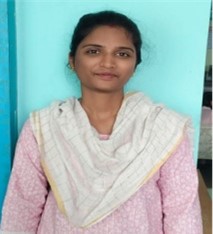
|
|
| MRS.GANTYALA ARUNA | MCA | ASSISTANT PROFESSOR |
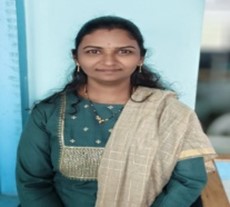
|
|
| MRS.THALLAPALLI MOUNIKA | MCA | ASSISTANT PROFESSOR |
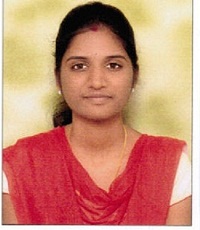
|
|
| MRS. SARITHA PALLE | MCA | ASSISTANT PROFESSOR |
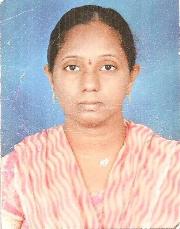
|
|
| MR.K. NAGENDRA PRASAD | MCA | ASSISTANT PROFESSOR |
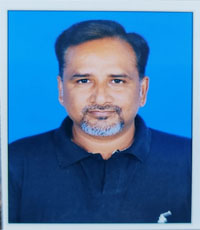
|
|
| MISS.SOLLETI TEJASHWINI | MCA | ASSISTANT PROFESSOR |
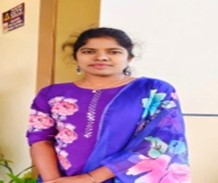
|
|
| MRS. HARITHA VEMULAVADA | MCA | ASSISTANT PROFESSOR |
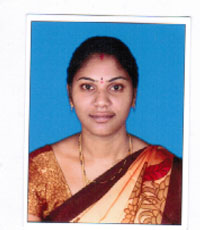
|
|
| MRS. ANUGU PAVANI | MCA | ASSISTANT PROFESSOR |

|
|
| MRS. NOMULA POOJA | MCA | ASSISTANT PROFESSOR |
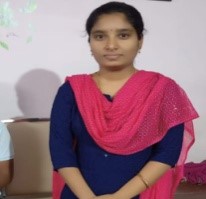
|
|
| MR. THANNIRU RAMAKRISHNA | MCA | ASSISTANT PROFESSOR |

|
https://ieeexplore.ieee.org/document/8186733
https://www.ijmr.net.in/current/2017/Jan-June,-2017/w7ogBanfZUVERTA.pdf
Coming Soon.